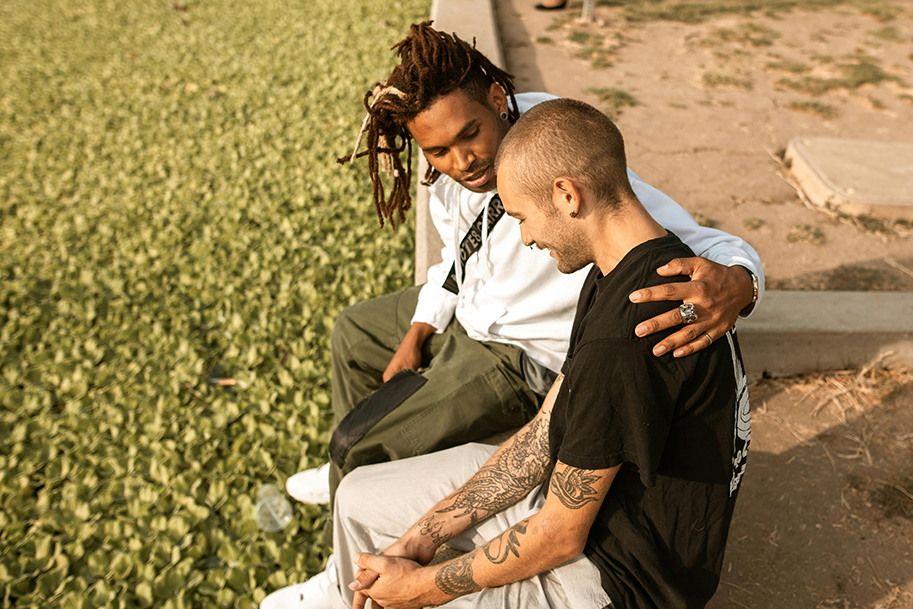
Missionary Life
How to Navigate Pregnancy on the Mission Field
December 9, 2019
by admin

Pregnancy — it can be a beautiful thing, but it can also be a stressful experience. Finding a doctor, learning new things, growing a human.
But for missionaries, the stress is often multiplied. They have to navigate all of the challenges and logistics of being pregnant while living in a foreign country!
Some families decide to stay on the field to have their baby, and some decide it’s best to go back home. How do you know what’s best? One TEAM missionary shared her story and the valuable lessons she learned.
Finding Out You’re Pregnant
Claire and her husband were trying to grow their family long before they went to serve in the Middle East. They looked into fertility specialists and adoption but realized that neither of those would be a realistic option once they went overseas.
“Moving overseas, itself, felt like giving up any sense of control I had for this dream of being a Mom,” Claire says. “If it was going to happen, God was going to need to move in a big way.”
So, God moved. Just three months after moving abroad, Claire found out she was pregnant!
But being pregnant in a foreign country brought a unique set of challenges. Claire didn’t know how to find a doctor or make an appointment. She was worried that the nurses wouldn’t speak much English and she wouldn’t be able to understand them. She didn’t feel close enough with anyone to ask their advice about doctors.
The Challenges of Pregnancy Abroad
Claire got a recommendation from an American midwife who had a connection with Claire’s church. The doctor spoke English, but none of the nurses did.
Claire was in the midst of learning the local language, but she struggled due to what many women refer to as “pregnancy brain.”
“Language learning felt hard as my brain felt mushy at times,” Claire says. “I was exhausted and was adding pregnancy exhaustion to culture stress exhaustion to language learning exhaustion.”
Luckily, Claire learned enough of the language to communicate with the nurses during the appointments leading up to giving birth.
Claire and her husband also put a lot of thought into how where they chose to give birth would affect their daughter’s citizenship.
Because Claire’s husband is a Canadian citizen, their child would automatically be a Canadian citizen, no matter where she was born. However, things will get complicated if Claire’s daughter marries someone who is not Canadian. If Claire’s daughter and son-in-law had a baby outside of Canada, then that baby would not be a Canadian citizen.
“[Because of this] we thought it could be better for [our daughter] down the road to be born in Canada, but then we realized that we can trust God with our grandchild and not make things more complicated for ourselves. … There are a lot of ‘ifs’ here!” Claire says.
For missionaries serving in more rugged regions, or in cultures with more drastic differences, these may be just the beginning of their difficulties. It’s important to research pregnancy in your host culture early so you can prepare for any roadblocks you may face.
The Beauty of Pregnancy in Another Culture

Through her pregnancy, Claire got to see a whole other side of her host culture. Her neighbors were excited in a way she’d never seen in the U.S. (Stock photo)
But even with all of the challenges and “what ifs,” Claire still noticed some really beautiful things about being pregnant in a different culture.
“Babies are so loved [in this culture]!” Claire says. “A common response to pregnancy or babies is ‘Maşallah!’ which is a blessing for health and safety.”
She also noticed that in this culture, men are just as excited about celebrating other people’s pregnancies as women.
Claire’s experience opened her eyes to the kindness of the people in the country where she serves. For example, one of Claire’s nurses was driving out of town to visit family on the night Claire’s daughter was born, but she turned around because she had a feeling that Claire was going to give birth that night. And that’s what happened!
Another time, a neighbor chased Claire’s husband down in the grocery store to ask if the baby had been born yet. Claire’s pregnancy journey in this place made the country feel like “a whole new level of home.”
Advice for Pregnant Missionaries
Claire advises anyone who is pregnant on the mission field to get plenty of rest.
“In this line of work, there’s a temptation to try and be the pregnant superhero,” Claire says. “We have supporters and teams and expectations put on us and expectations we put on ourselves.”
But when Claire announced the pregnancy to her supporters, they were excited and asked if she was getting plenty of rest. This made her realize that the expectations she had were ones she put on herself, not ones other people were putting on her.
“For the most part, we have this blessing of flexibility in our schedule, … so if you need a nap, take it.” Claire says. “If you need to take a break from language study, take it. Say no to things. Your mental and physical health is worth it.”
Being pregnant on the mission field also showed Claire what she is capable of.
“I learned that I can do it,” she says. “I still feel surprised and strong and proud of myself for having a baby in a foreign country. … I gave birth when only two out of the 10 people in the room spoke my language. I had a woman, who I barely know, whisper in my ear — in a language not her own, ‘Wow wow wow, good job.’ That meant the world to me.”
Pregnancy, no matter where you experience it, is a miracle and a learning experience.
If you were pregnant on the mission field, we would love to hear what your experience was like, what you learned through it, and how it impacted your ministry. Let us know your story in the comments!
*The names of the people in this story may have been changed to protect their privacy.
If you are interested in serving on the mission field, your first step would be to talk to a missions coach. A missions coach can help walk you through the process and answer any questions you have.


